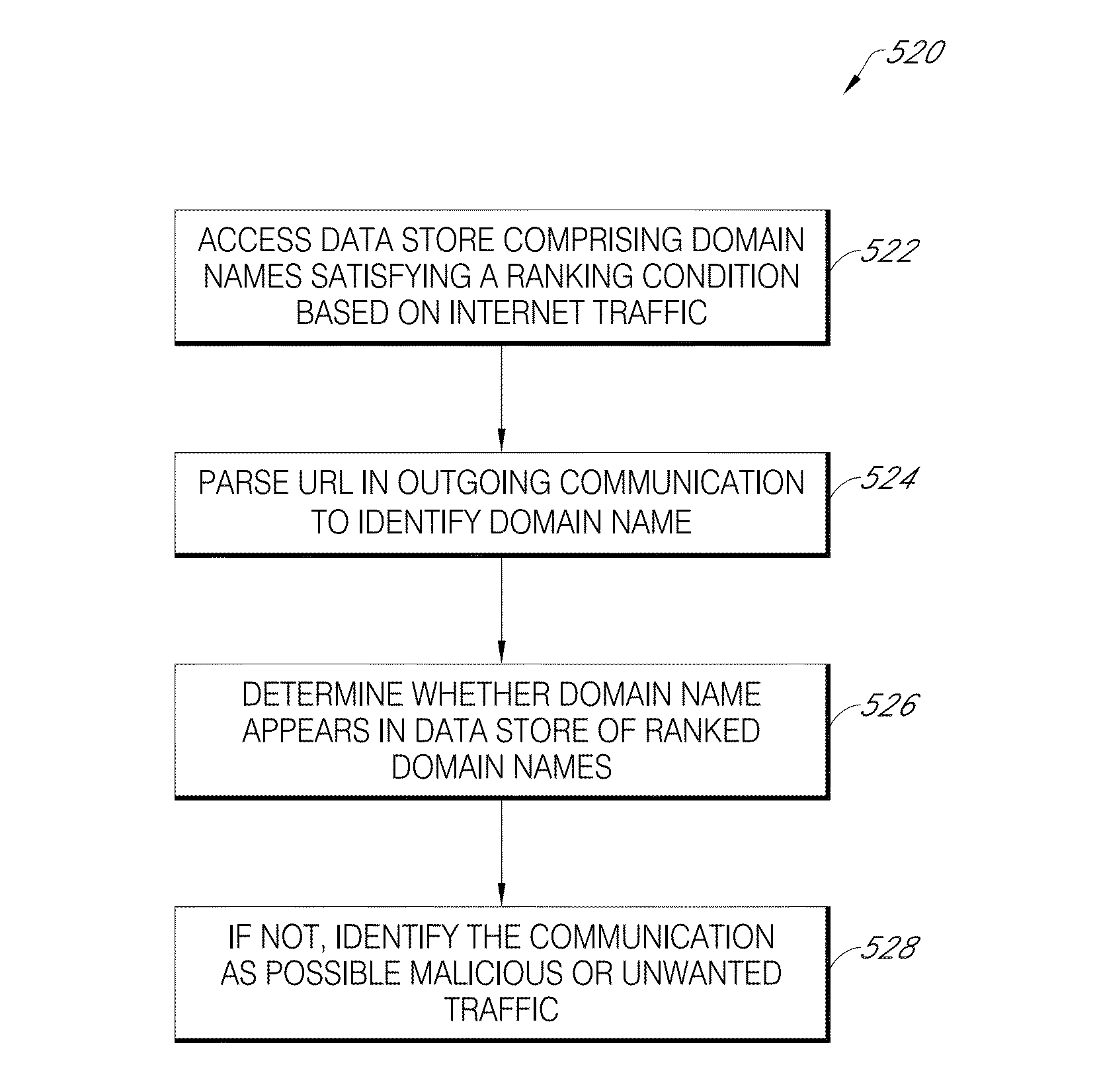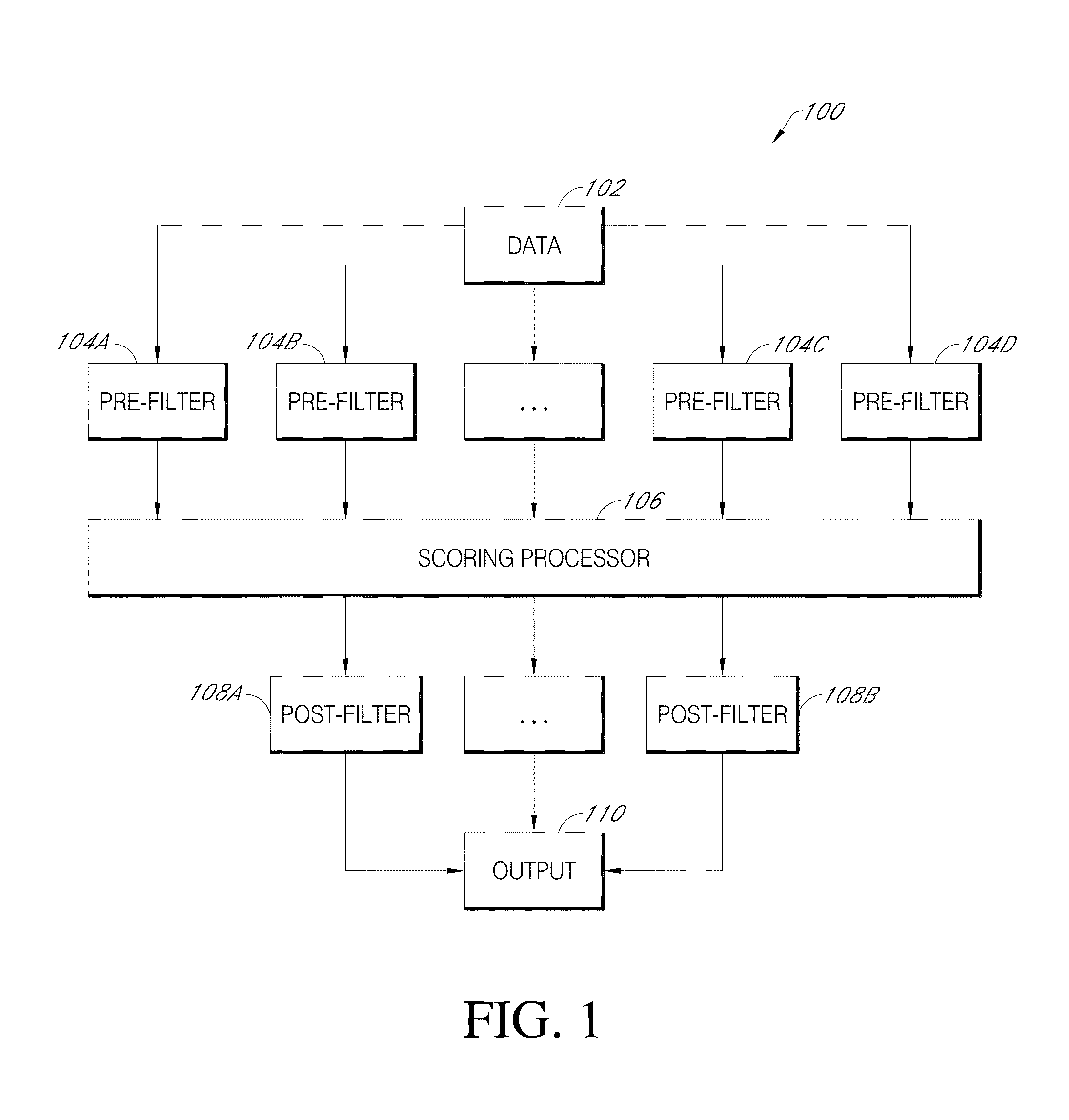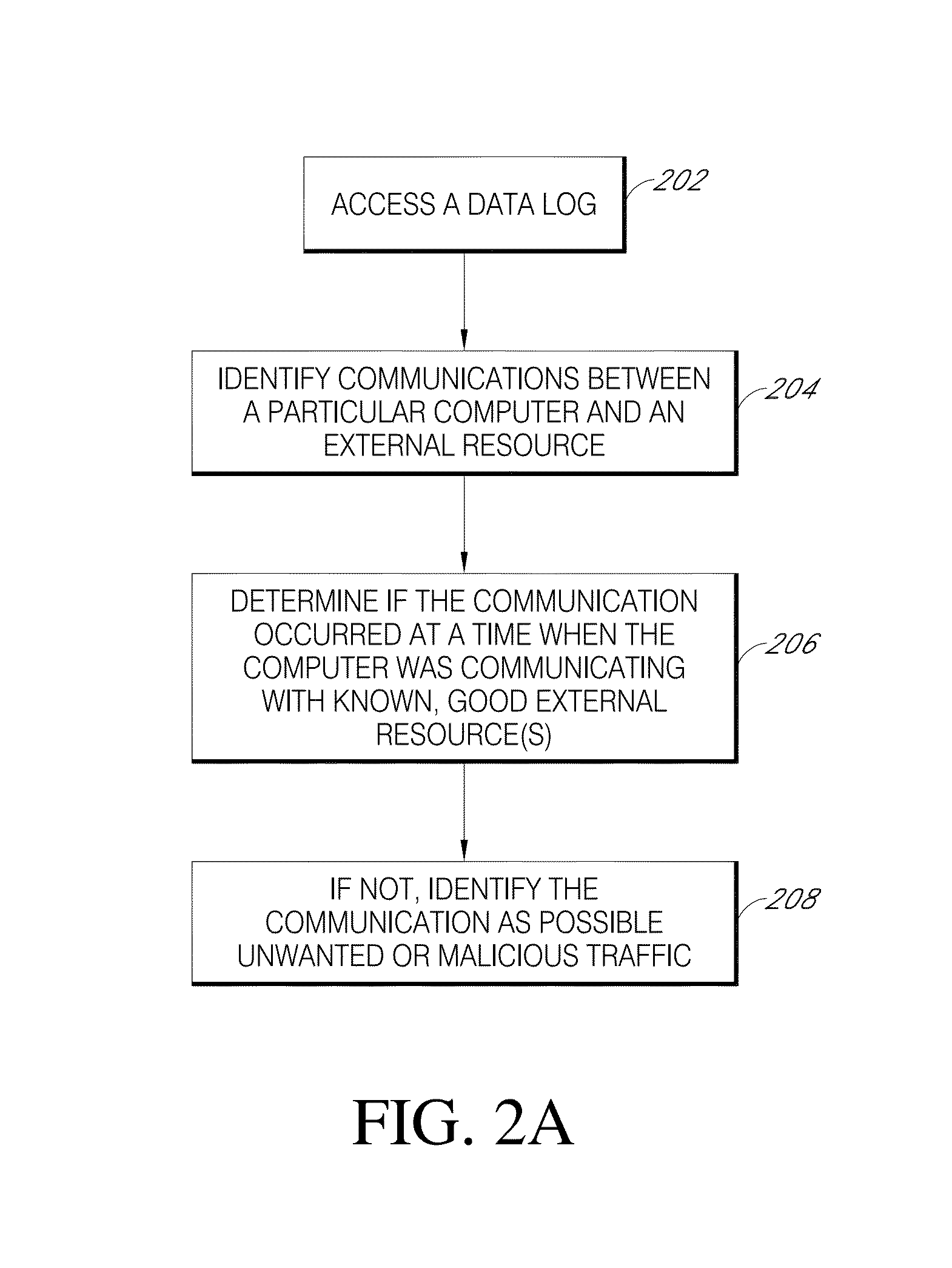Malicious software detection in a computing system
a computing system and software detection technology, applied in the field of systems for detecting malicious software in the computing system, can solve the problems of compromising the security of computing systems, consuming significant storage and/or memory, and organizations have difficulty in monitoring and identifying information access requests associated with malicious content, so as to improve the functioning of at least one computing system, improve processing speed, and improve the effect of local network functioning
- Summary
- Abstract
- Description
- Claims
- Application Information
AI Technical Summary
Benefits of technology
Problems solved by technology
Method used
Image
Examples
example
[0159]A computer-implemented system accesses a server's proxy log. The system is configured to execute the timing pre-filter and the beaconing malware pre-filter to identify potentially malicious URLs. An additional pre-filter is executed on the URLs identified by the beaconing malware pre-filer to filter out domain names that are not ranked in Alexa Internet's list of the top-1000 or top-10,000 websites. This subset of data items is likely to have been transmitted in response to a command by malicious software than items that are not in the subset.
[0160]The scoring processor executes a scoring process on the subset of data items, using at least four vectors including n-grams (e.g., variance from expected distribution), dictionary filtering (contains at least one word in dictionary), autocomplete (autocomplete results include at least one malware-related keyword), and pre-filter hit count. The score calculated according to the machine learning model indicates the relative likelihood...
PUM
 Login to View More
Login to View More Abstract
Description
Claims
Application Information
 Login to View More
Login to View More - R&D
- Intellectual Property
- Life Sciences
- Materials
- Tech Scout
- Unparalleled Data Quality
- Higher Quality Content
- 60% Fewer Hallucinations
Browse by: Latest US Patents, China's latest patents, Technical Efficacy Thesaurus, Application Domain, Technology Topic, Popular Technical Reports.
© 2025 PatSnap. All rights reserved.Legal|Privacy policy|Modern Slavery Act Transparency Statement|Sitemap|About US| Contact US: help@patsnap.com



